Maximizing Opportunities: Foreign Direct Investment Case Studies in Honduras
Honduras is emerging as a fertile ground for foreign direct investment (FDI), with sectors such as energy consumption, textiles, and infrastructure offering promising prospects for international investors in the mining industry. The Enee administration, responsible for approving mining claims and overseeing surface mines, plays a vital role in the development of Honduras’ mineral deposits.
The nation’s commitment to improving its investment climate has not gone unnoticed, leading to a notable increase in capital inflows and economic stimulation. See NATIONAL INVESTMENT COUNCIL HONDURAS (cni.hn)
Recent case studies provide illuminating insights into how strategic FDI has the power to transform the Honduran economy, drive innovation, and enhance global competitiveness.
To unravel the success stories across various industries and the impact on the country’s growth trajectory, keep reading for a comprehensive exploration of Honduras’ investment landscape.
Key Takeaways
- Honduras Is Experiencing a Shift Towards Renewable Energy, Attracting International Investment in Its Energy Sector.
- The nation’s robust textile industry is drawing foreign direct investment, Backed by trade agreements like CAFTA.
- Public-Private Partnerships Are Driving Large-Scale Infrastructure Projects, Enhancing Honduras’ Economic Landscape.
- Eco-Tourism Is Gaining Traction in Honduras, With Investment Opportunities in Sustainable Travel and Luxury Tourism.
- Investments in Agriculture, Particularly Specialty Coffee, Are Positioning Honduras as an Emerging Market Leader
Pioneering Energy Sector Investments in Honduras
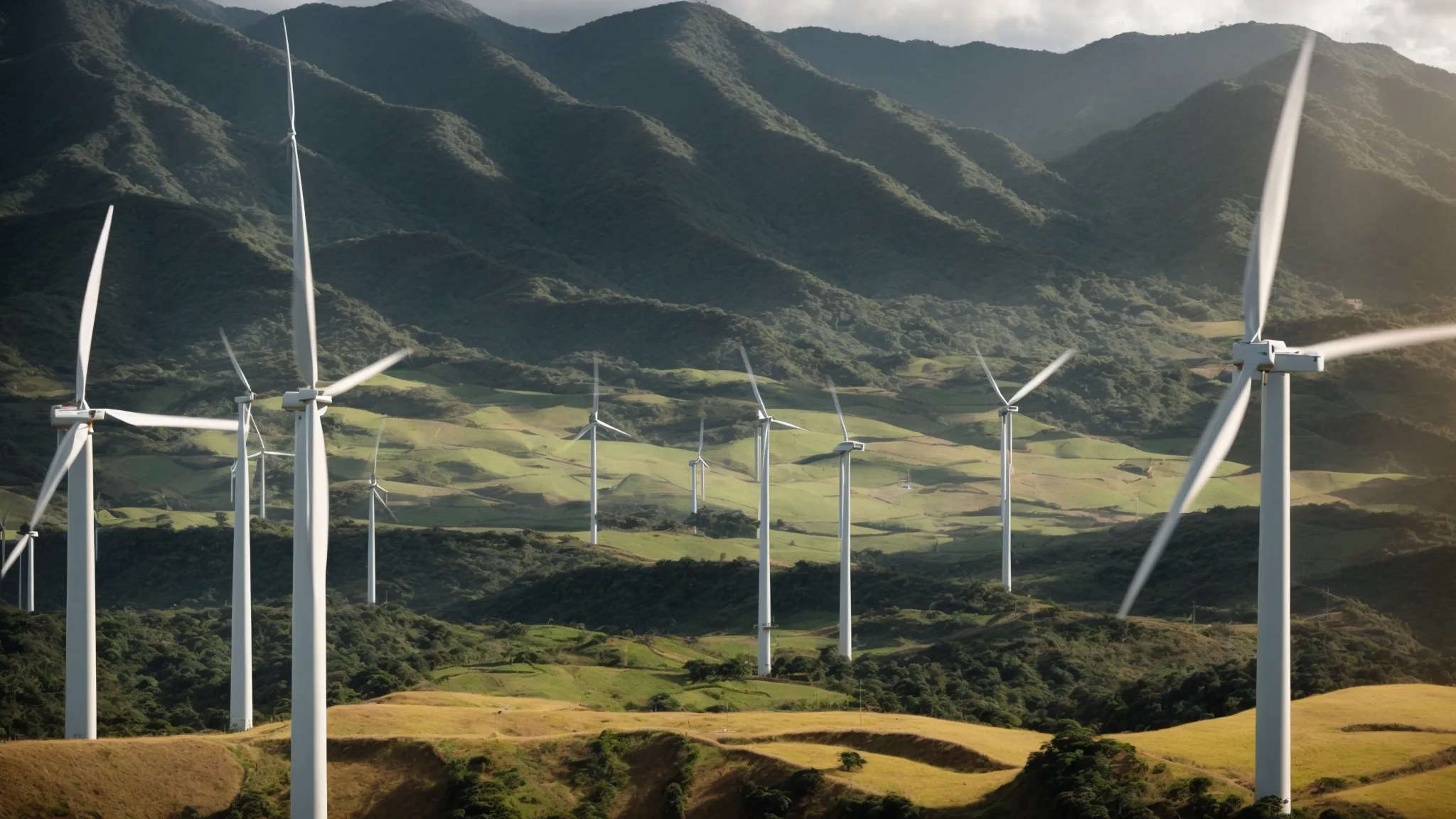
As Honduras beckons investors with its favorable geographic and climatic conditions, a discernible tilt towards renewable energy projects emerges as a beacon for foreign capital seeking sustainable growth in energy consumption. The mining industry plays a significant role in the country’s economic development. Hydropower is one of the key renewable energy sources.
Notable industry figures have commenced operations, encouraged by the nation’s pressing need for diversification in energy sources and expansion of its electrical infrastructure.
A rigorous analysis of recent legislative amendments reveals a framework designed to allure international stakeholders, promising to transform the energy landscape.
This panorama sets the stage for a rich dialogue on Honduras’ stride towards renewable energy integration, a detailed look at the chief contributors in its energy domain, and the discerning examination of policy shifts shaping investment appeal with local communities, territory, and electrification.
Identifying the Shift Towards Renewable Energy Projects
Amidst Honduras’ verdant landscapes, a quiet revolution unfurls as clean energy projects command increasing attention from policy architects and investors alike. This enthusiasm, sparked by the nation’s abundant solar and wind resources, lays the groundwork for a sustainability narrative marked by a decisive pivot from traditional energy sources. The administration plays a crucial role in driving this shift.
Capital inflows destined for these nascent ventures illuminate Honduras’ commitment to fostering an environment ripe for renewable technology advancements. Evidenced by rising numbers of hydroelectric, solar, and wind initiatives, the country’s energy blueprint is being redrawn to emphasize resilience and long-term ecological stewardship. The ENEE is at the forefront of these efforts.
Highlighting Key Players in Honduras’ Energy Market
Renewable energy stalwarts in Honduras are rapidly establishing their prominence, with Empresa Nacional de Energía Eléctrica (ENEE) spearheading the charge as the principal purveyor of electricity. This state-owned entity has been instrumental in expanding access and catalyzing private sector participation, setting a precedent for a balanced energy mix leveraged through local and international expertise. The company plays a crucial role in generating electricity and promoting sustainable energy consumption in Honduras.
Private sector agility complements public endeavors as Grupo Terra and Energía Eólica de Honduras SA assert themselves among the vanguard of renewable energy development. These corporations exemplify the successful synergy of domestic knowledge with global investment trends, propelling the nation’s clean energy capabilities to meet the escalating demands of its burgeoning economy and population. Furthermore, their efforts contribute to reducing energy consumption reliance on fossil fuel and promoting sustainable electricity generation. The report on the mining industry highlights the importance of sustainable practices in the sector.
Analyzing the Policy Changes Impacting Foreign Investments
Honduras has recalibrated its legislative compass to attract cross-border investment, introducing incentives aptly targeted at foreign stakeholders. Recent enactments tailor fiscal perks, customs exemptions, and streamlined procedures for overseas enterprises endeavoring to partake in the country’s renewable energy quest. The administration is working closely with ENEE, US Aid, and other relevant institutions, including local communities, to ensure the success of this initiative.
Fostering an investment-friendly milieu, these policy amendments extend beyond mere enticement. They construct a secure legal framework, crafting an arena where foreign direct investment can thrive amidst transparent governance and equitable treatment, underpinning the nation’s dedication to nurturing a fertile ground for international collaboration in the energy and mining industry in Honduras.
Textile Industry Surge Boosts Honduras’ Economy
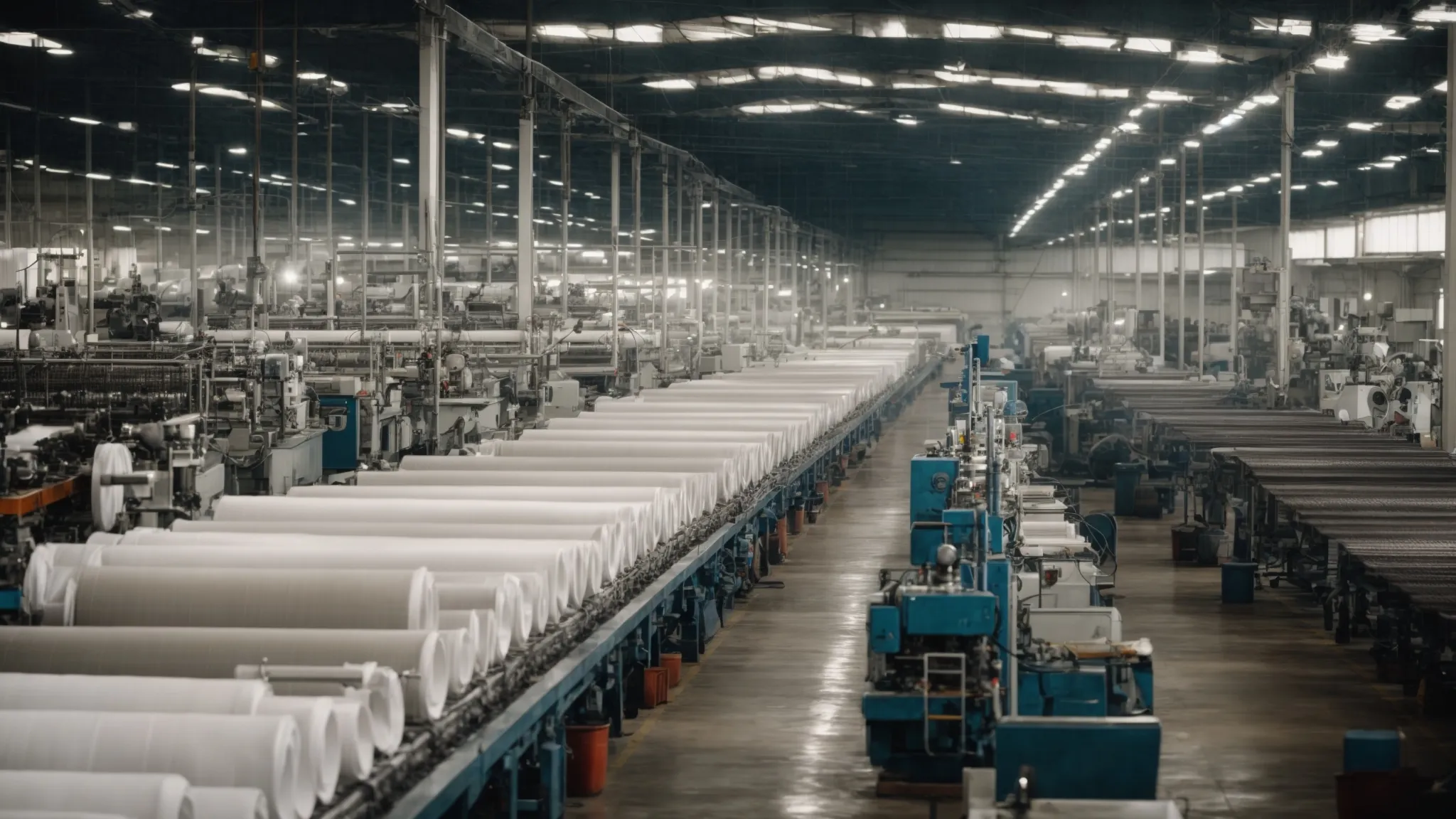
In the realm of foreign direct investment, Honduras’ textile sector stands as a dynamic testament to economic vigor, with cutting-edge advancements positioning the Central American nation as a powerhouse for apparel manufacturing.
Governed by robust trade agreements, this surge has attracted myriad FDI endeavors, illustrating international partners’ pivotal role in propelling local industries to global prominence.
The forthcoming discourse sheds light on the textile industry’s unprecedented progress, dissects the trade pacts bolstering its ascent, and delineates the trajectory of textile enterprises that have flourished through astute foreign investments. The report provides valuable insights into this thriving sector.
Exploring Rapid Advancements in the Textile Sector
Honduras carves out its niche in the global market with a marked upswing in textile production, leveraging advanced automation technology and competitive labor costs. This surge endows Honduras with the capabilities to service demand from international fashion brands seeking agile manufacturing hubs. The energy mining process in Honduras has been a significant factor in this growth.
The nation’s production facilities now flaunt sophisticated machinery, enabling seamless integration into the global supply chain and positioning Honduras as a significant player in the fast-paced world of textile exportation. Enhanced connectivity has propelled these modernized Honduras-based operations to fore of innovation, expediting product turnaround to match the industry’s rapid cycles. The mining industry in Honduras has also seen significant growth.
Evaluating Trade Agreements Fueling Growth
Trade agreements act as pillars undergirding Honduras’ ascent in the textile sector, establishing a foundation for reciprocal economic benefits. The Central American Free Trade Agreement (CAFTA), in particular, provides preferential access to Honduras, incentivizing apparel and textile manufacturers eyeing the North American market.
- CAFTA entails duty-free entry for Honduran products into diverse markets, amplifying export potential.
- Stringent labor and environmental provisions within these agreements assure investors of commitment to sustainable practices.
- These pacts have served to streamline cross-border commerce, enhancing efficiency and predictability for international businesses.
Such frameworks elevate Honduras’ position as a strategic trading partner, bolstering investor confidence and fostering a climate conducive to foreign direct investment. Honduras fortifies its economic foothold by enabling smoother trade flows, drawing a roadmap for sustainable prosperity. ENEE plays a vital role in this process.
Profiling Successful FDI Textile Enterprises
Honduras garners attention with the triumphant ascent of Gildan Activewear, a textile titan that has expertly capitalized on the country’s competitive advantages. With multiple facilities across Honduras, Gildan’s operations have become synonymous with innovation and economic stimulation, asserting the tangible impact of judicious foreign investments on local industry dynamics. The mining process, particularly in the surface mine, plays a significant role in the country’s energy in Honduras.
The mining industry has also significantly impacted the country’s economic growth.
Harnessing Honduras’ venerated status in textile manufacturing, Fruit of the Loom exemplifies another success story, thriving under advantageous trade agreements and fertile business conditions. These strategic investments buttress the nation’s economy while transforming the textile landscape into a globally recognized bastion of production excellence:
- Gildan Activewear’s expansion evidences robust growth and job creation stemming from FDI.
- Fruit of the Loom stands as a model for sustainable practices and operational efficiency within the sector.
- Both enterprises reflect Honduras’ allure as an investment destination for the textile industry.
Development of Infrastructure Through FDI in Honduras
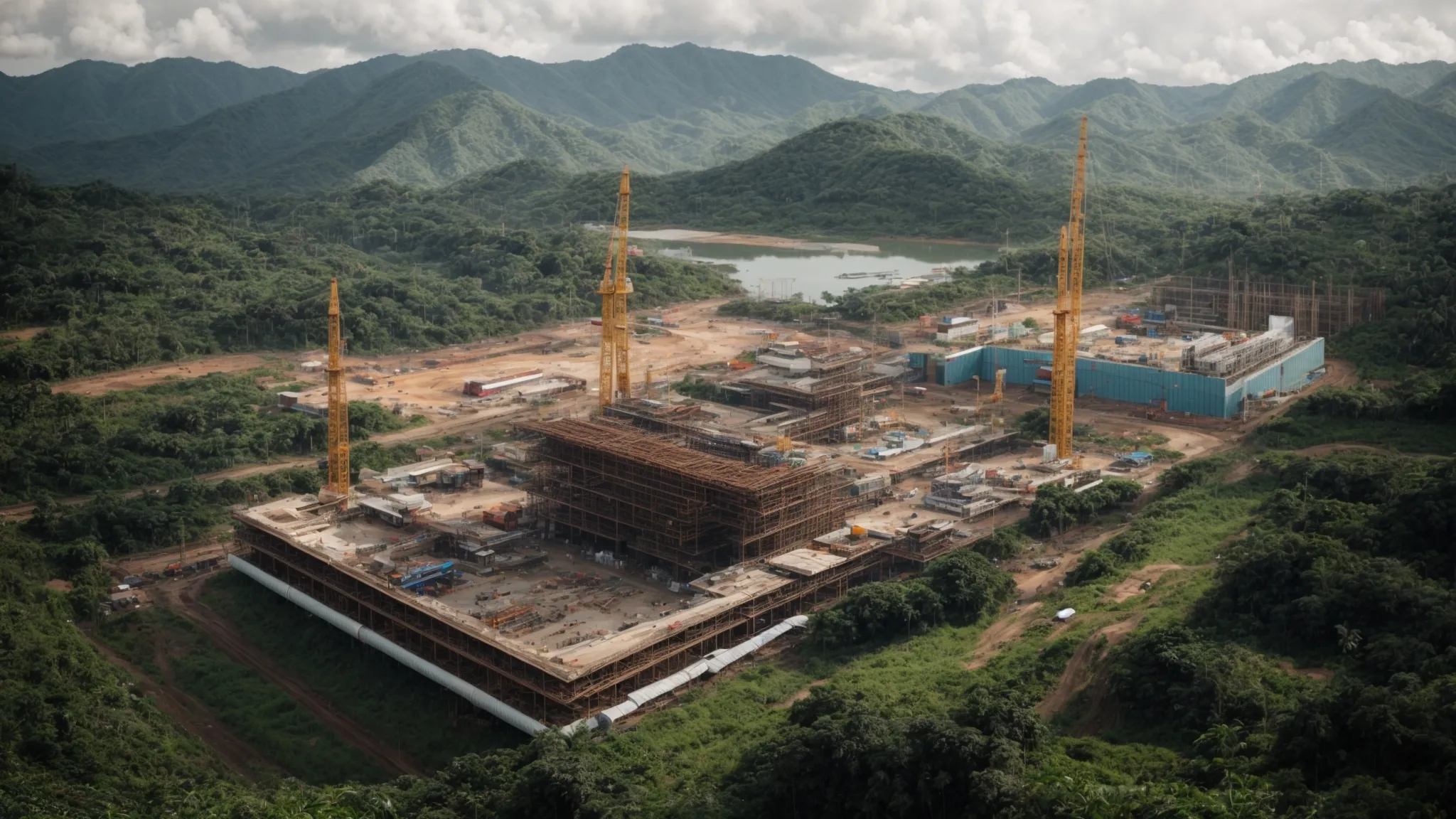
Honduras, with its strategic geographic position and ambitious growth plans, has ushered in a new era where foreign direct investment plays a pivotal role in the development of its infrastructure and electrification.
Mega-projects, partnered with global investors, stand as monuments of progress, symbolizing economic resilience and transformation.
These ventures, many orchestrated through public-private partnerships, lay the foundations for a modern Honduras and are poised to leave an indelible mark on the nation’s economy.
The subsequent exposition breaks new ground by scrutinizing these colossal undertakings, revealing the mechanics of collaborative financing and evaluating their foreseeable influence on Honduras’ prosperity.
Examining Mega-Projects and Their Global Investors
Honduras opens its doors to pivotal infrastructure projects, enabling sweeping enhancements in connectivity, energy, and urban development. These initiatives attract the discerning eye of global investors, drawn to the prospects of high-impact collaborations with lasting economic footprints. The mining claim sector is particularly enticing, with abundant mineral and ore deposits.
Strategically, infrastructure becomes a canvas for international partnerships, embodying innovation and forward-thinking investment. Global financiers thus anchor themselves within Honduras’ burgeoning market, catalyzing progress and setting the stage for sustained economic vitality.
The Role of Public-Private Partnerships in Infrastructure
In a determined effort to invigorate its infrastructure landscape, Honduras turned to public-private partnerships (PPPs), forging alliances that melded governmental vision with the dexterity and innovation afforded by the private sector. These partnerships are pivotal for the enaction of sizeable infrastructure ventures, channel expertise, and funding crucial for Honduras to revamp its roads, telecommunications, and energy frameworks.
Honduran authorities and international consortia unite under the PPP model to actualize projects that might otherwise exceed public sector capacities. Such collaborative endeavors are designed to distribute risk equitably, enhance efficiency, and accelerate the completion of essential infrastructure, thereby reinforcing Honduras’ economic framework and competitiveness.
Assessing the Long-Term Impacts on the Honduran Economy
Long-term economic projections posit a bullish outcome for Honduras, as infrastructure developments fueled by foreign direct investment magnify the nation’s gross domestic product. Enhanced facilities bolster trade efficiency and serve as catalysts for secondary industries, further diversifying economic activities and employment prospects.
Beyond immediate fiscal surges, the ripple effect of bolstered infrastructure is anticipated to elevate Honduras’ competitive edge on a global platform. As connectivity and energy advancements reduce operational costs, the nation anticipates attracting a higher volume of international enterprises, securing its status as a hub for investment and innovation. Electrification and hydropower advancements play a crucial role in this transition.
Attracting FDI in Honduran Tourism
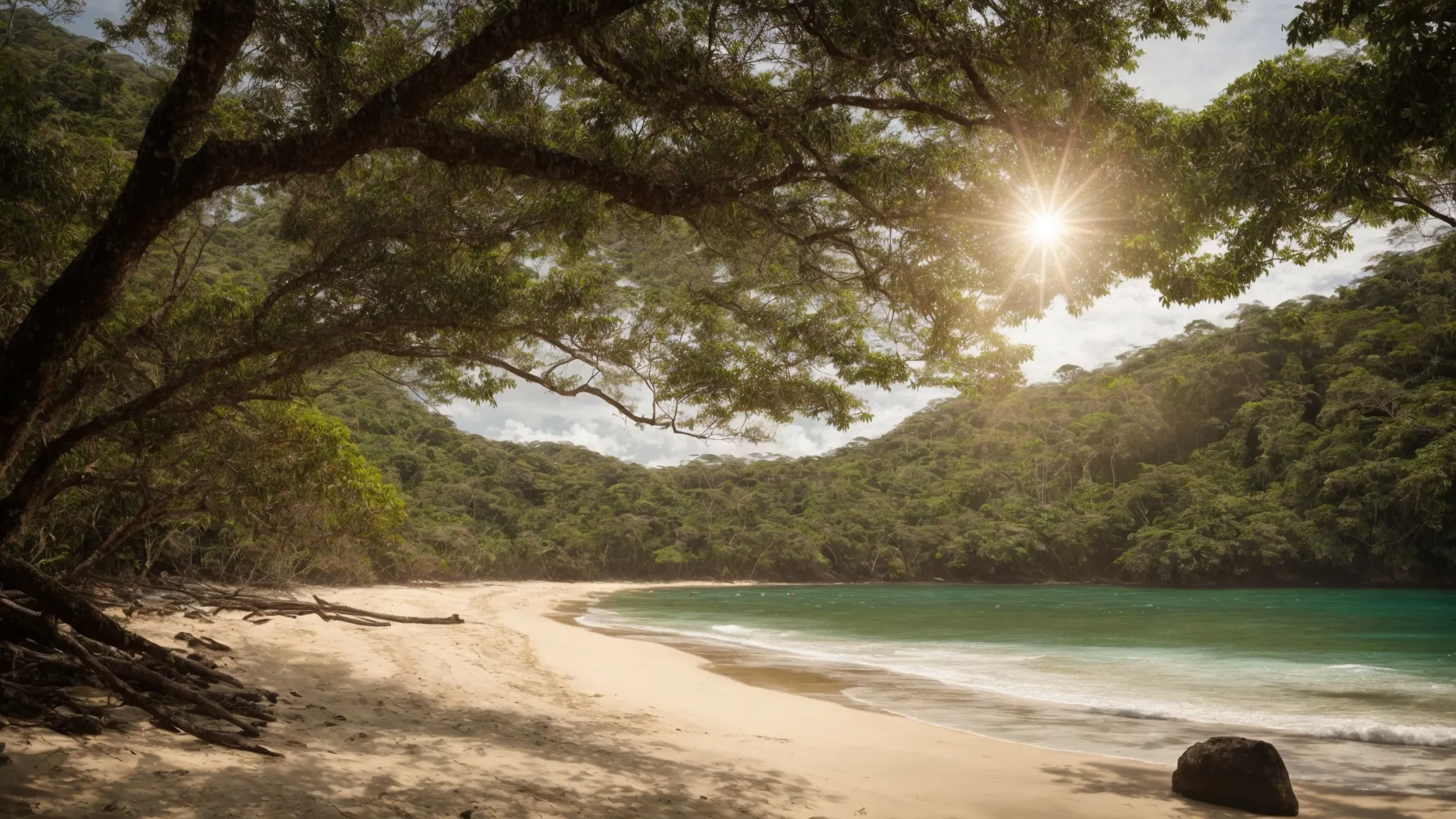
Amid the lush canopies and pristine beaches, Honduras unveils its potential as a leading eco-tourism hotspot, beckoning investors with its untapped natural beauty and cultural richness.
The burgeoning tourism sector stands poised to welcome foreign direct investment, which is crucial for enhancing its eco-tourism appeal and expanding its hospitality offerings.
Potential investors are drawn to an array of opportunities, ranging from upscale resorts to eco-friendly lodges that promise to fuse sustainability with profitability.
Honduras shines under the spotlight with its commitment to transforming the hospitality landscape through enticing investor-friendly initiatives, positioning the nation as a magnet for those aiming to pioneer in the lucrative realm of green travel and luxury tourism. The Enee group is playing a crucial role in the electrification of the territory, ensuring sustainable energy sources such as hydropower and wind farms.
Marketing Honduras as an Eco-Tourism Destination
Within the verdant heart of Central America, Honduras unveils a treasure trove of ecological wonders, positioning itself as an emerging leader in eco-tourism. Intrepid marketing initiatives project the country as a sanctuary for sustainable travel, captivating a burgeoning segment of environmental enthusiasts and adventure seekers with its biodiverse rainforests, ancient Mayan ruins, and vibrant coral reefs.
Honduran tourism authorities harness the power of robust digital campaigns and strategic global partnerships to highlight the nation’s unique offerings. Through these efforts, Honduras amplifies its voice in the international arena, firmly establishing its brand as synonymous with conservation-centered travel experiences that resonate with the ethos of the modern globetrotter. Enee plays a crucial role in advancing the country’s transition towards electrification and reducing greenhouse gas emissions.
Investment Opportunities in the Hospitality Sector
In Honduras, the hospitality sector blooms with possibilities, fueled by investor-centric policies and an untainted natural landscape. Upscale resort developments and eco-lodges represent just a fraction of the ventures ripe for exploration by international financiers, resonating with a global audience yearning for responsible yet luxurious escapes.
Strategic injections of foreign direct investment in hospitality pledge returns and stimulate local economies and employment. Stakeholders receive a warm invitation to contribute to the fabric of Honduran tourism, infusing capital into a sector that promises growth aligned with the rhythms of nature and the beat of cultural authenticity.
Case Studies of Successful Tourist Resorts and Facilities
In the coastal gem of Roatán, Infinity Bay Spa& Beach Resort stands as a paragon of success, drawing eco-conscious travelers with its commitment to environmental preservation and community integration. Its sustainable practices and world-class amenities serve as a compelling model for eco-tourism excellence. The company’s energy consumption and responsible power plant operations contribute to its positive impact in Latin America.
- Infinity Bay’s coral reef conservation initiatives spotlight a harmony between luxury and conservation.
- Collaborative community programs underscore the resort’s deep-seated value in progressive, responsible tourism.
- Recognition by global travel awards accentuates the resort’s status as a top-tier destination.
Further inland, the Lodge at Pico Bonito enhances Honduras’ allure within the eco-tourism sector, blending deluxe accommodation with access to the rich biodiversity of Pico Bonito National Park. The lodge’s thriving birdwatching tours and conservation efforts have been instrumental in setting benchmarks for sustainable hospitality benchmarks in Honduras.
Agribusiness Expansion via Foreign Investment
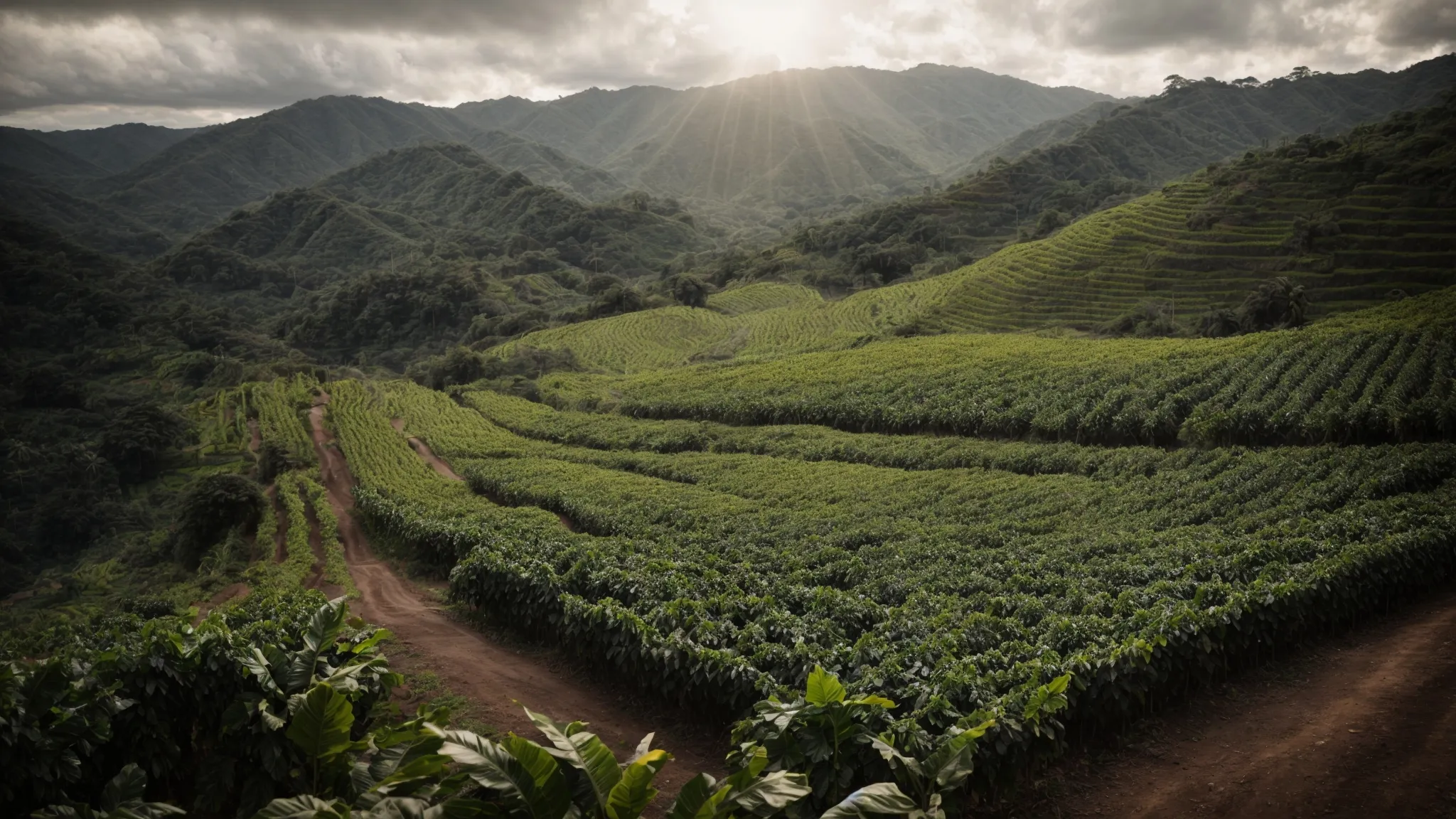
Honduras, recognized for its fertile soil and diverse microclimates, has embraced the agricultural sector as a cornerstone for economic development, with a keen eye on maximizing the potential held within its lush terrains. The government has also prioritized energy consumption and electricity generation in Honduras, aiming to reduce reliance on fossil fuels and promote sustainable power plants.
The landscape is coming alive with foreign direct investment fueling a revolution in farming practices and export productivity.
This vigor is particularly evident in the innovations taking root in the nation’s agricultural export strategies, where external capital plays a pivotal role in enhancing local agricultural technology.
Investors have taken note of Honduras’ capacity for producing high-quality specialty coffee, distinguishing it as a prime candidate for investment in niche markets with high growth potential.
In this context, the following discussions will unfold, illuminating the transformative power of foreign direct investment in the agrarian domain of Honduras.
Innovations in Honduran Agricultural Exports
Stimulated by external capital, Honduras sees its agricultural export sector leaping forward with innovations that enhance the marketability and quality of its produce. The adoption of sophisticated irrigation systems and precision farming technologies aligns local practices with international standards, escalating the appeal of Honduran goods on the global stage.
Through strategic foreign investment, specialty crops such as organic cacao and heirloom varieties of maize are gaining prominence in international markets. These efforts represent a deliberate shift in focus towards high-value agriculture, securing premium pricing and establishing a competitive edge for Honduran exports.
How FDI Improves Local Agricultural Technology
As foreign direct investment flows into the fertile plains of Honduras, it brings a tide of technological advancements. These strategic infusions of capital introduce cutting-edge farming equipment and methods, efficiently modernizing the agriculture in Honduras sector and allowing it to flourish.
Investments direct from international sources serve to establish Honduras as a leader in sustainable agricultural practices:
- Enhanced agricultural technologies empower local farmers with sustainable methods to increase crop yields.
- Advanced training initiatives elevate the proficiency of the agricultural workforce, optimizing overall productivity.
- Investors facilitate access to innovative biotechnologies, boosting the genetic quality of local produce.
Through these tangible improvements, the landscape of agribusiness in Honduras is transformed, paving the way for a more prosperous and technologically adept farming future.
Case Study: Export Growth in Specialty Coffee Markets
Honduras emerges as a burgeoning hub for specialty coffee, with its high-altitude terrains and adept farming communities cultivating beans that are wooing the palates of global connoisseurs. The narrative of Honduras’ ascent in the specialty coffee market is underscored by effective foreign investments that have infused the sector with resources and expertise:
- International alliances have equipped local farmers with sustainable farming techniques and premium-quality seeds.
- Marketing acumen from global partners has positioned Honduran coffee within niche segments, boosting recognition and demand.
- Dedicated investment has spurred advancements in processing facilities, ensuring that Honduran beans meet the rigorous standards of specialty markets.
These concerted efforts propel Honduran blends into the limelight at prestigious coffee competitions, winding a tale of triumph for a country once overshadowed in the coffee domain. Through mutually beneficial collaborations, Honduras not only carves a niche in the high-end coffee echelon but also reaps economic and social benefits, signaling a transformative chapter in its agricultural legacy.
Technology and Telecommunications FDI in Honduras
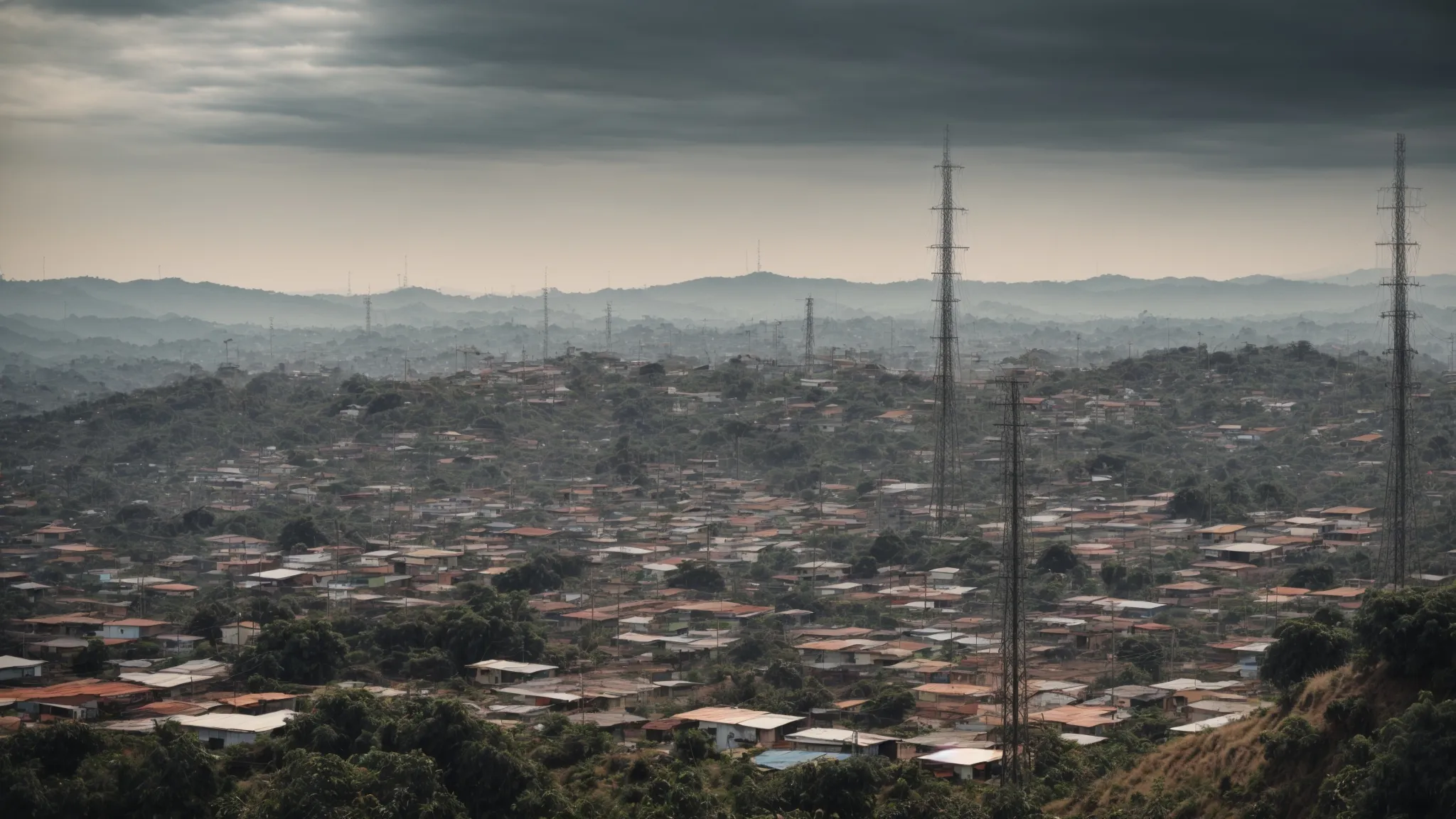
Amid an era marked by rapid digitalization, Honduras embraces a significant phase in its technological evolution, fostered by noteworthy inflows of foreign direct investment (FDI) into the nation’s technology and telecommunications sectors.
This dynamic shift is not only reshaping the country’s infrastructural capabilities but is also demonstrating the transformative role of external funding in propelling connectivity and tech-centric advancements.
With multilayered developments across Honduras, these investments lay the cornerstone for a digitally inclusive society backed by a robust and contemporary telecommunications framework.
The ensuing narratives will unravel pivotal growth trends, appraise the multifaceted impact of international investments, and spotlight emblematic FDI projects that are instrumental in fortifying Honduras’ position as a forward-looking tech hub in the region.
Growth Trends in the Tech and Telecom Sectors
A surge in technological prowess marks a new chapter for Honduras as the nation witnesses substantial growth in its technology and telecommunications sectors, fueled by foreign direct investment. Enabling the deployment of high-speed broadband and mobile services, this growth aligns the country’s communication capabilities with emerging global standards.
Investor confidence signals a positive trajectory for the tech landscape in Honduras, with an increasing number of international tech firms setting up operations within the country. These developments catalyze a more connected, tech-savvy population and lay the groundwork for Honduras to emerge as an influential tech player in the region.
Examining the Impact of Foreign Capital on Connectivity
Honduras’ telecommunications sector showcases a transformative journey punctuated by targeted foreign investments paving the path to enhanced connectivity. These strategic infusions fund the expansion of state-of-the-art mobile networks and the deployment of high-speed broadband across diverse Honduran locales.
As international capital floods into the telecom infrastructure, a notable uptick in digital inclusivity is witnessed, bridging the connective divide and ensuring equitable access to information technology services:
| Project | Investor | Outcome |
|---|---|---|
| Mobile Network Expansion | Global Telecom Partners | Enhanced cellular coverage |
| Broadband Deployment | International Tech Funds | Widespread high-speed internet access |
Profiles of Key FDI Projects Improving Local Tech Infrastructure
One prominent FDI endeavor reshaping the technological capacity in Honduras involves a significant investment aimed at expanding fiber optic infrastructure. Spearheaded by an alliance of global communications firms, this project positions Honduras at the forefront of rapid data exchange and telecommunication enhancements. The company works closely with the government and US Aid to reduce energy consumption and promote sustainable electricity generation in Tegucigalpa and Latin America.
Another noteworthy project centers on the development of a nationwide digital platform, geared towards modernizing public services. Funded by leading international tech investors, this initiative promises to revolutionize citizen access to governmental processes, thereby fostering a more efficient, transparent, and connected society.
Frequently Asked Questions
How has foreign direct investment contributed to the growth of the energy sector in Honduras?
Foreign direct investment has been instrumental in enhancing Honduras’s energy sector by injecting much-needed capital and technological expertise to develop infrastructure and expand renewable energy projects. It has provided the impetus for economic growth and sustainable development within the country, bolstering the energy sector’s capacity to meet rising demand and reduce dependence on traditional energy sources.
What role has foreign direct investment played in the surge of the textile industry in Honduras?
Foreign direct investment has been the catalyst for the remarkable growth of Honduras’s textile industry by providing the necessary capital for the expansion and modernization of facilities. It has also fostered an environment rich in skill development and technology transfer, aiding the industry to compete on a global scale. The mining claim sector has also greatly benefited from the influx of investment, particularly in ore deposits and mineral deposits.
How has foreign direct investment contributed to the development of infrastructure in Honduras?
Foreign direct investment (FDI) has played a pivotal role in advancing Honduras’s infrastructure by funneling capital into critical projects like road construction, telecommunications, and energy generation facilities. It has also served as a catalyst for public-private partnerships, fostering growth in technical expertise and operational efficiency.
What strategies has Honduras implemented to attract foreign direct investment in the tourism sector?
With an eye on boosting economic growth through its tourism sector, Honduras has embraced a multifaceted approach to entice foreign direct investment. The country has enacted generous investment incentives and improved infrastructure and launched robust marketing campaigns highlighting its cultural richness and natural beauty to captivate international investors. Central America is a promising region for investment.
How has foreign investment supported the expansion of the agribusiness industry in Honduras?
Foreign investment in Honduras has infused the agribusiness sector with vital capital, fostering innovation, infrastructure development, and market access. Through an array of collaborations and financial infusions, these investments have been pivotal in scaling up agricultural operations, enhancing productivity, and linking local producers with international trade networks.
What impact has foreign direct investment had on the technology and telecommunications sector in Honduras?
Foreign direct investment has significantly influenced Honduras’s technology and telecommunications sector, serving as a catalyst for advancements and modernization efforts. This influx of capital has fostered a more dynamic market and heightened competition and has propelled the development of infrastructure crucial for digital expansion in the nation.
Conclusion
In summary, Honduras is capitalizing on its geographic and climatic advantages by attracting foreign direct investment (FDI) across various sectors, each contributing to the nation’s sustainable growth and economic diversification.
Renewable energy initiatives are flourishing, with legislative support drawing in international stakeholders to aid in the transition from traditional energy sources and boost the country’s electrical infrastructure.
The textile industry is experiencing a boom, powered by trade agreements like CAFTA and innovative FDI-backed companies, which are making Honduras a key player in global markets.
Infrastructure development is another area benefiting from FDI through public-private partnerships, enhancing the nation’s connectivity and urban landscape.
Tourism, particularly eco-tourism, is being transformed through investments in luxury resorts and eco-lodges, tapping into the increasing desire for sustainable travel experiences.
In agribusiness, FDI modernizes practices and propels exports, with specialty coffee markets demonstrating the promising outcomes of investment on local and international levels.
Lastly, the technology and telecommunications sectors are expanding with the help of foreign capital, improving connectivity and digital inclusivity, setting Honduras on the path to becoming a regional tech hub.
These case studies highlight the critical role FDI plays in Honduras’ ongoing progress, transforming its economic landscape and offering prosperous futures for its industries and population.
Our law firm is ready to help you with your Foreign Direct Investment needs. Whether you are looking to invest in a new market, expand existing operations, or want more information about the laws and regulations that apply to your business, our team of experienced attorneys can provide you with the guidance you need. From providing legal advice on international mergers and acquisitions to structuring foreign investments for tax efficiency, we have the expertise to help you succeed. Contact Us Today


